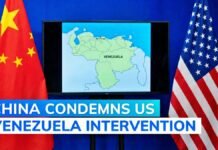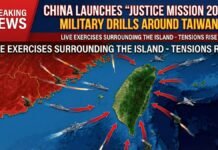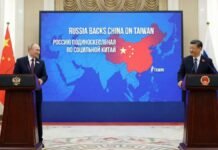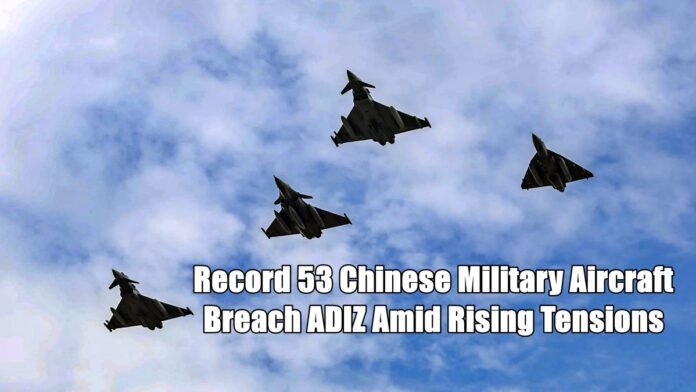
Key Points:
- Massive Military Presence: Taiwan’s Ministry of National Defense (MND) detected 53 Chinese military aircraft, 11 naval ships, and 8 official vessels operating near its territory on Wednesday morning.
- Airspace Intrusions: Of these, 23 aircraft crossed the Taiwan Strait’s median line and entered Taiwan’s air defense identification zones (ADIZ) in the north, southwest, and east.
- Military Escalation: This marks a sharp increase from the 10 aircraft and 7 ships observed the day before.
- Combat-Readiness Drills: Taiwan has launched countermeasures, including heightened military drills and coordination with its Coast Guard.
- Geopolitical Impact: The incident underscores escalating tensions as China ramps up pressure on Taiwan over sovereignty disputes.
Taipei: Taiwan woke up to a fresh wave of provocations from China, with its Ministry of National Defense (MND) reporting a record 53 Chinese military aircraft and 19 naval and official ships operating around the island as of 6 a.m. Wednesday. Of particular concern was the intrusion of 23 aircraft into Taiwan’s air defense identification zones (ADIZ), violating the median line of the Taiwan Strait, a critical buffer zone in the volatile region.
The MND issued a statement on X (formerly Twitter):
“As of 6 a.m. today, 53 PLA aircraft, 11 PLAN ships, and 8 official ships were detected around Taiwan. 23 aircraft crossed the median line and entered Taiwan’s northern, southwestern, and eastern ADIZ. We have monitored the situation and responded.”
This marked a sharp escalation from the previous day when 10 aircraft and 7 ships were detected, with 6 planes crossing into Taiwan’s southwestern ADIZ.
Taiwan Ramps Up Military Readiness Amid Threats
In response to the aggressive maneuvers, Taiwan has initiated combat-readiness drills at key strategic points across the island. The drills are being conducted in coordination with the Coast Guard Administration to ensure a robust and immediate countermeasure system. The island’s leadership has expressed grave concern over China’s continued military aggression, viewing it as an explicit challenge to regional stability.
Geopolitical Tensions Between Taiwan and China Deepen
The Taiwan-China dispute is one of the most fraught geopolitical issues in the world. At its core lies Taiwan’s de facto independence versus Beijing’s claim that Taiwan is a breakaway province under the “one China” policy.
A Brief Historical Context:
- Post-Civil War Division: The Chinese Civil War (1945–1949) resulted in the ROC government retreating to Taiwan while the Communist Party established control over mainland China.
- Decades of Isolation: Beijing has worked to isolate Taiwan diplomatically, asserting its influence through economic and military coercion.
- Taiwan’s Resistance: Despite Beijing’s pressure, Taiwan maintains its self-governance, with broad public support for preserving its democratic system and independence.
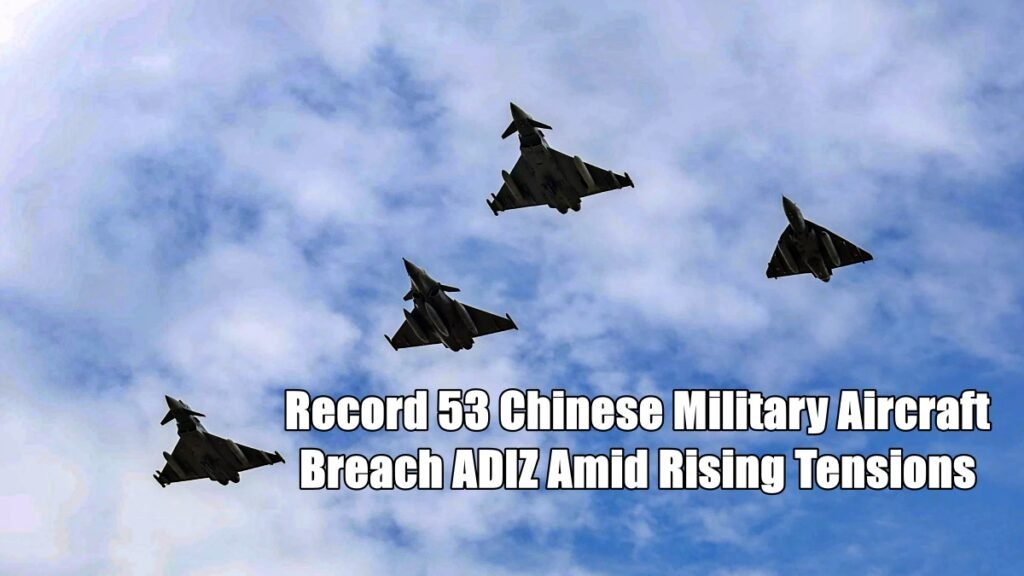
Growing Concerns Over Regional Stability
China’s increasing military activity around Taiwan raises alarms for regional stability, particularly for neighboring nations and the broader Indo-Pacific. Analysts suggest that Beijing’s provocations aim to test Taiwan’s defenses while sending a message to international observers, especially the United States, which has pledged to support Taiwan under the Taiwan Relations Act.
As tensions rise, Taiwan continues to advocate for peace and stability in the region while reinforcing its military and international alliances. The island’s response underscores its resolve to maintain sovereignty despite mounting challenges.










































